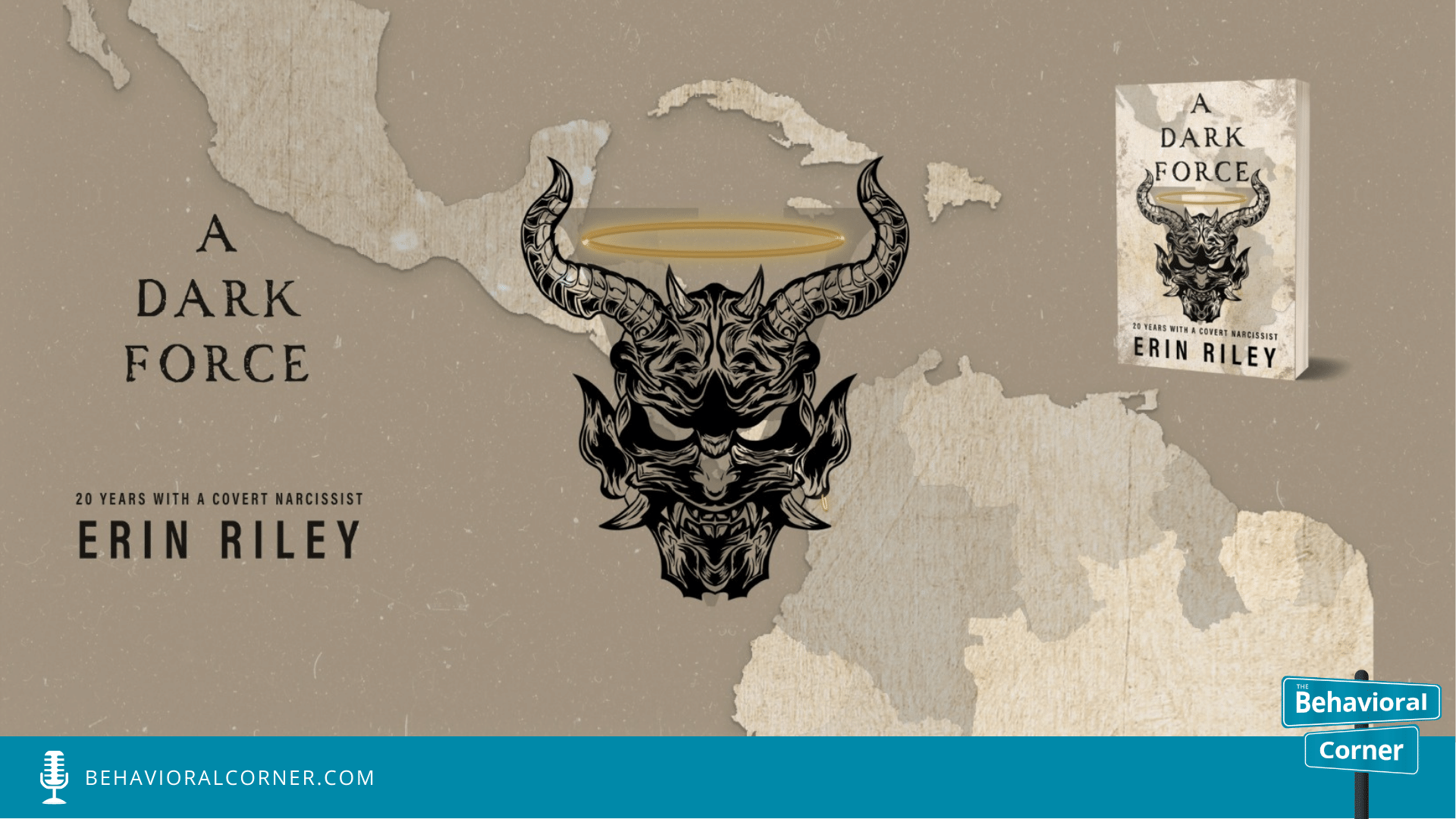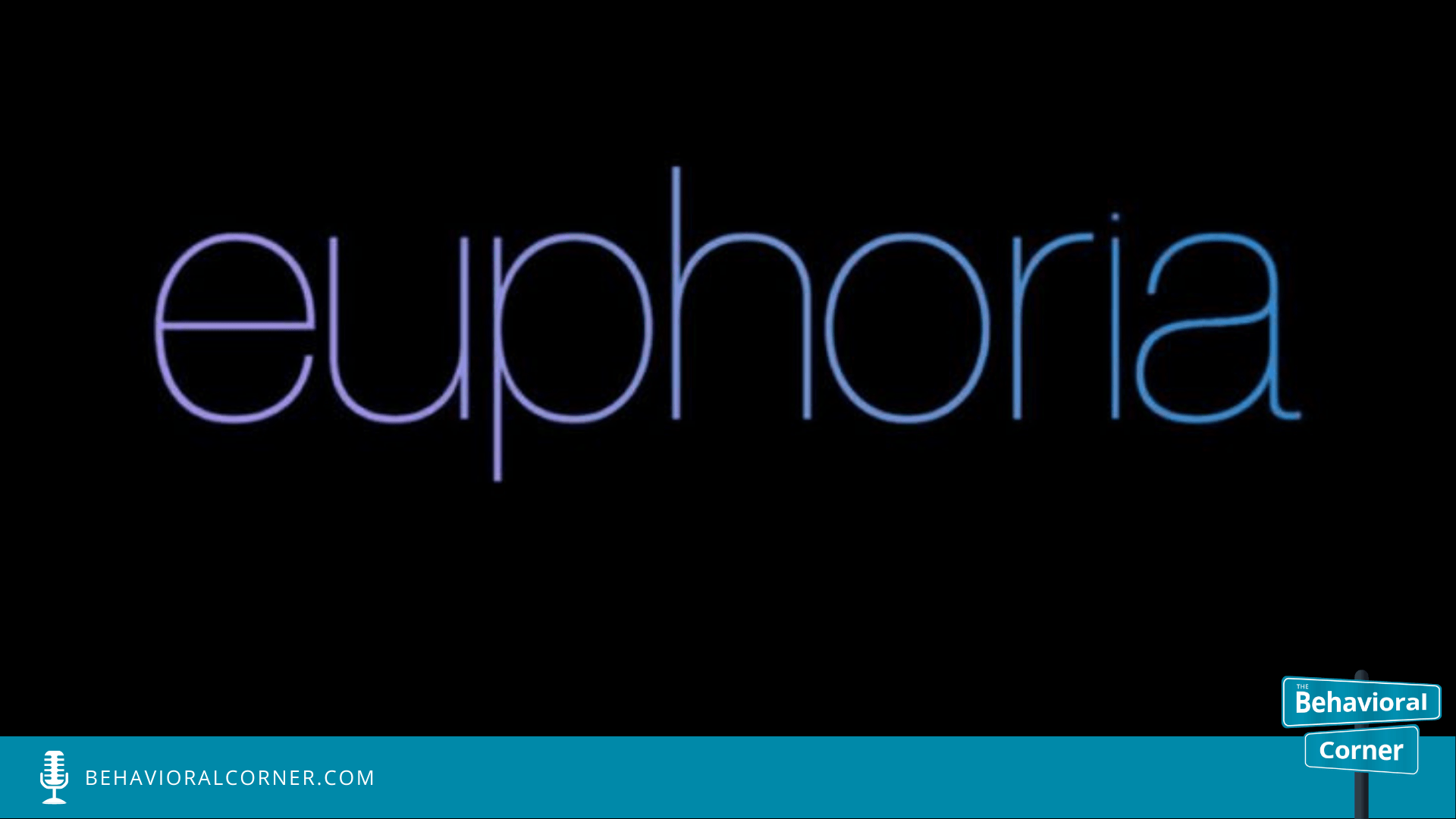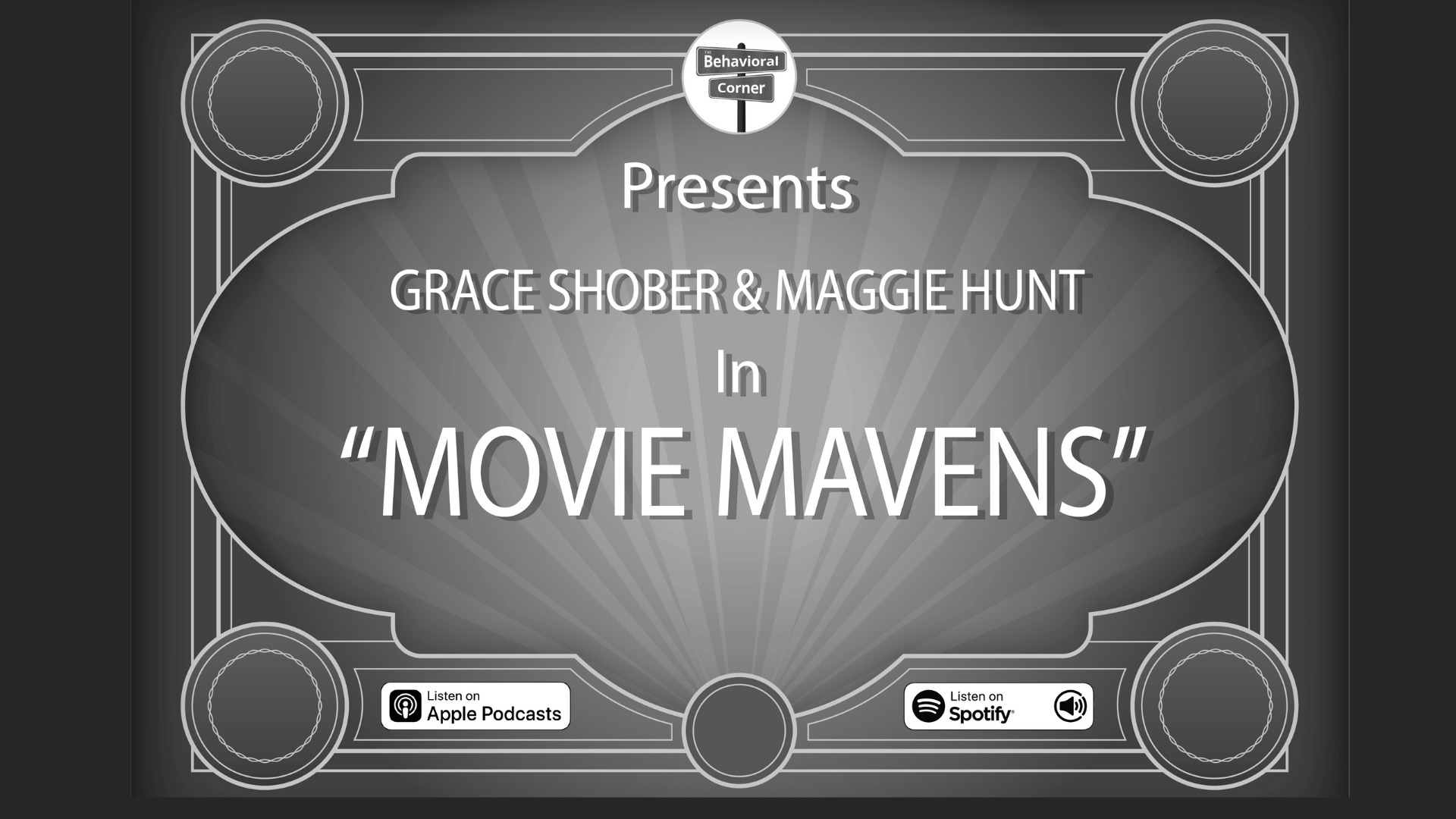The Behavioral Corner. A Review.
Feb 19, 2023
As we approach our 150th episode, the Corner looks back at some recent highlights. From Erin Riley’s journey through a toxic relationship, Paul Brown’s Black History Month musings, and Christopher Massimine’s struggles with lying to our Movies Mavens - Grace Shober & Maggie Hunt’s - film reviews, it’s a reminder of what we shared with our listeners. And a thank you for your support.
The Behavioral Corner Podcast is made possible by Retreat Behavioral Health. Learn more.
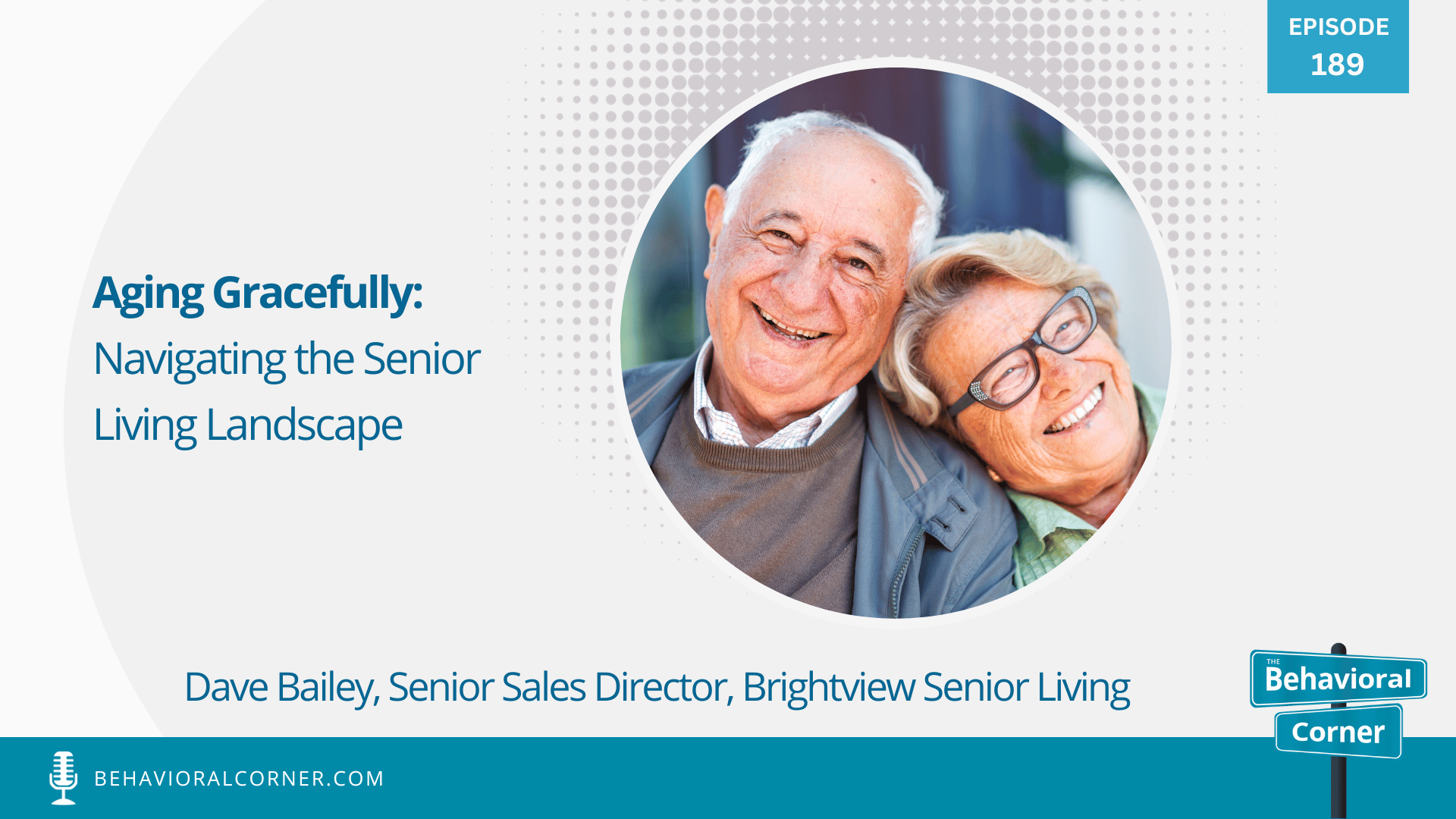
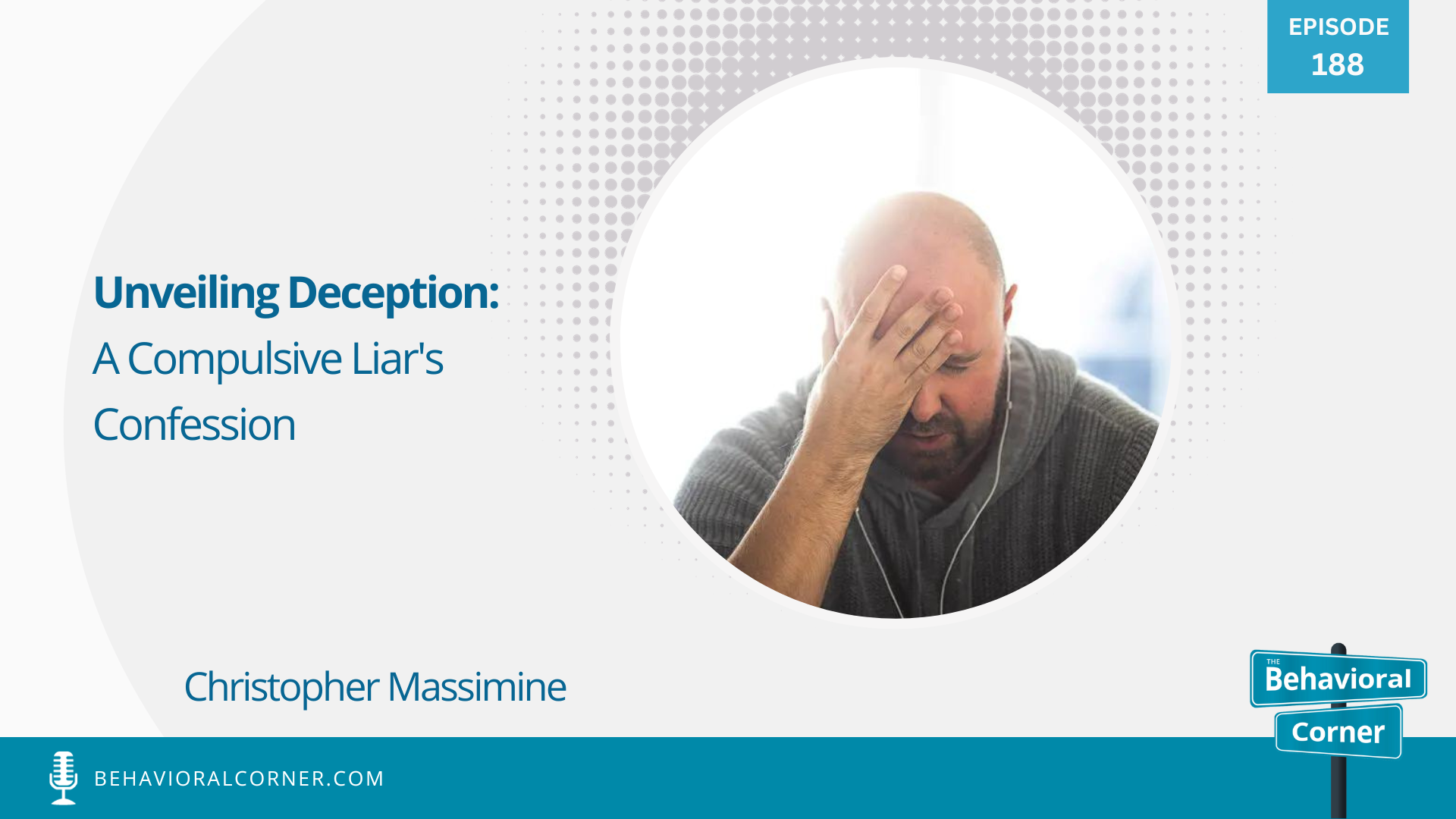

Ep. 143 Podcast Transcript
Steve Martorano
The Behavioral Corner is produced in partnership with Retreat Behavioral Health -- where healing happens.
The Behavioral Corner
Hi, and welcome. I'm Steve Martorano, and this is the Behavioral Corner; you're invited to hang with us as we've discussed the ways we live today, the choices we make, the things we do, and how they affect our health and well-being. So you're on the corner, the Behavioral Corner. Please hang around a while.
Steve Martorano
My name is teve Martorano. I am your host and guide as we gather here to talk about behavioral health. Behavioral Health is produced in conjunction with our underwriting partner retreat, behavioral health, we'll tell you more about them in a moment, and we're going to take something of a departure for those of you who are familiar with the website on this edition. And we're going to sort of bring you up to date on what we've been about as we approach our 100 and 50th. podcast, we thought we would restate our mission and tell you what our intent was all along. First of all, when retreat, behavioral health signed a board to be our underwriting partner. They gave us editorial control, they said this doesn't necessarily be an infomercial for them. They wanted it to be informative, entertaining, and enlightening. And we hope we have done that. They're terrific people. And if you are in the process of looking for a place or getting questions answered, we can recommend them to you. So anyway, with all 150 podcasts under our belt, I like to say this is a podcast about everything because everything is what ultimately affects our behavioral health. So we've ranged far and wide with our interview subjects, I think you'll realize, as you look around, we touch upon a lot of different things. Because, as I said, Everything affects the way we behave, our moods, and our overall well-being, we thought we would take a look at a couple of recent programs to measure your reaction to them because that's very important to us to find out, you know what kind of feedback we're getting, and give you an idea of what we're thinking about going forward. So if you got to a couple of minutes, this won't take very long. We hope you will find it informative. That's the whole purpose. As I said, as we take a look back at 100 and approaching 150 episodes of the Behavioral Corner, I'm going to begin taking you back to a most recent, I suppose, episode. It is February, and that, of course, is designated as Black History Month. We thought we would take a look at what black history was about, something about its origins, what it was intended to do, and what it is doing. And we thought we would do that rather than go to a historian or an academic or an activist. We thought we'd go to the garden variety African American and see what they felt they were getting out of if anything. Black History Month. So to that end, we welcome back to the program a while ago, a couple of weeks ago, a fella by the name of Paul Brown, who is an acquaintance of mine. Paul is, among many other things, a podcaster. He's an entrepreneur, he owns his own business, and his wife is a physician. He's raising his children in the Mount Airy section of the city of Philadelphia. He is a very lively guy, very smart. He is steeped in his culture and talks about that on his podcast, which I recommend to you. It's called, it's always personal in Philadelphia. Paul's a very, very bright guy. And we were delighted to have him with us a couple of times. What happened with Black History Month and his take on it is that it resulted in a very spirited back and forth in the comment section on the Behavioral Corner website, which was interesting because, well, often people that commented on the programs, there's not often the kind of interactive I wouldn't say argument but discussion that went on but such as the nature of the topic. I don't want to characterize everything Paul said to us during that podcast. I would urge you to instead go back and take a look at it. But in essence, what he was saying was that Black History Month has historically been designated to highlight and promote black achievement in history, and he's done a great job of doing that. That's a terrific purpose. False desire was as a young African American that maybe they would tell a broader story. Maybe they would move beyond look what we've accomplished. Look how far we have come and talk a bit more about The totality of the black experience before they were slaves in the Americas. I thought that was an interesting take. Paul, as I said, is a well-read guy. He doesn't often accept the doctrinaire view. He brought to my attention something that I wasn't really that conscious of a while back when he talked about generational trauma, how generations succeeding generations can be traumatized by an event in their history, even though they weren't directly involved in it. And he certainly thinks there's something to the notion of a trauma associated with slavery and African American history. But his argument seemed to be centered around before we were slaves. We were not slaves. We were people living in our own countries. In our own world, we had our own civilizations, and perhaps going forward, he would like to see Black History Month devote some attention to that aspect of the story. And it shouldn't come as a surprise, it didn't to me anyway, that the reaction to that show was spirited. It was lively, and it was divisive. There were people who disagreed with a lot that was said there. But more so in general, the idea of race in America and what it means, who's responsible, and what the impact has all been. And I think if you look at the end, go back and listen to Paul's comments, look at the video, take the measure of him, as I said, he's a bright guy. And then look at the comments that follow that. It's kind of illustrative of where we are or where we remain as a society over the issue of race in America, which is still an obvious divide.
Paul Brown
I feel like Black History Month makes me feel like a very again, in the sense that Black History Month. It's just American history. And it should be taught along with history, right? As opposed to being separated in the shortest month of the year. And for the most part, Black History Month has been extremely whitewashed to a point where we only get nuggets of information that don't really tell the true story of what my ancestors did in his nation to make it stand up to its original values.
Steve Martorano
I mean, we're still doing it. I mean, we're still doing Paul's comment and his opinions. And they are just that his opinions inspired a lot of give and take, which we like. I mean, we'd like that. We'd like to hear what you're thinking when you hear these topics. And we're always looking for suggestions in that regard. So as we look back at some of the recent episodes, I would recommend that one right away because we still are, of course, in the month of February. Another program that I'd like you to take a look at involves a fella by the name of Christopher Massimine. Chris came to my attention to a newspaper article I read in the New York Times, an extraordinary story of Christopher, the title of which should give it all away. Large picture of Chris in the paper, and the headline was, can this man stop lying? Right thought, well, that's interesting. Guys in the New York Times, because he's a liar. Well, it turns out, yes, that's pretty much the problem. We've all heard the expression pathological lying. We toss it around like we know what it means. In fact, it's only very recently that researchers have been looking at people who can't tell the truth. And wondering whether or not this is a character flaw. Totally. You know, they're just liars, or whether or not there may be an underlying mental health issue at work here. And certainly, Chris is interested in answer to those questions, as well. The story that I read that inspired me to invite him to the program was extraordinary. In its candor, this is a fella that had a bright career in theater management in the Midwest, a lovely family, who was fabless he just made up stories, extraordinary and florid tales out of whole cloth. He just couldn't stop himself from making these stories out. Very often, they were not associated at least immediately with any game. I mean, you know, from the time we're children, we understand it. If mom wants to know who ate all the cookies, it's kind of we're kind of hardwired to go. I didn't know it. There's a game there. You're trying to deflect blame. Chris's lying was of a different sort. It seemed to be not connected to any immediate game. He just told stories, and they are extraordinary. Well, naturally, it catches up to him as most lives do, and that's why he joined us to talk about how he was trying to repair The damage lying he had done to try to get to the bottom of what was causing this. What's fascinating about the interview we did, and the fact that he's so honest about his behavior, is that it occurs, he's lying occurs in the sort of golden age of lies. And he lists the number of people who've captivated our attention for many, many years, certainly more so now than ever, because of their ability to just lie. But I would be remiss if I didn't point out for this interview that risk occurred before we learned the truth about the congressman from Long Island, Santos, who is from pillar to post, an absolute fraud. Everything about his resume, everything he said about his life, his background, was made up. And now he sits in the United States, Congress, shamelessly sits there and says he's not going to resign. Everybody says these little lies are missing for the moment, but that is not wise; we're not little. So the idea that I would have felt like Christopher Massimine had been on to discuss his particular issue with just that problem struck me is timely. And you might want to take a look at that. Here, is a couple of just a couple of the things that Chris told us about that program.
Christopher Massimine
So I've got a couple of disorders. I've got a major depressive disorder. I have PTSD. And then, of course, the Cluster B personality where lying is part of that. Obviously, through the research that's happening now trying to change the DSM, it does feel apparent that lying can be its own thing. That stands very much solo. It's been hard kind of reconciling some of the things within the Cluster B personality and not everything fits. And I think that's why they kind of group a bunch of things together and say, okay, of Cluster B personality, but the lying is always kind of been like you would put it in a coping mechanism. And really, as it grew over time, it just became more and more compulsive. More and more addiction, like. Where it's been something that's kind of controlled my life, whether I wanted to or not. Whether it was coping or not.
Steve Martorano
You know, you really don't get a sense of how bizarre some of these stories were and the damage that occurred in Chris's life, which he's now trying to struggle to get out from under. It's very difficult, as you might imagine, to rebuild your career, when your resume is, you know, a fabrication, and you've lied to your colleagues. But he's doing that, and he's brutally honest about what his lying did, the people that hurt, and how he's trying to get a handle on it. So, as an interviewer, I've never interviewed 1000s of people. I've never had in front of me someone who was an acknowledged liar. Lots of the people I've interviewed lie. And they lied to me, I'm sure. But they weren't acknowledged and admitted that they were liars. So it was an extraordinary interview. And you, I dare say, know somebody in your life who probably has some trouble with the truth every now and then. This might be an insightful thing for you to take a look at the Behavioral Corner. Finally, the program I would urge you to go back and look at the we have a couple of programs, but one, in particular, involves a young woman by the name is Erin Riley. Aaron is a very successful career woman. She had a marvelous career in the music business for many, many years, met many famous people went to many terrific places, and enjoyed a pretty. I would say successful business life on the personal side of things. She has had very bad situations with the men in her life. And so she came to us with a story that we call toxic relationships. And she told it in as clear and as brutally honest way as you can imagine. She was explicit in the damage done. She understood she had some role as an enabler when she found herself in a relationship that was destructive not only to the relationship but also to her mental health. And she struggled to get out of it, which she done successfully. Incidentally, she's now the author of a successful book called A dark force, where she talks about toxic relationships and the role narcissism and malignant narcissism plays in these relationships. This was another program that caused a lot of activity in the comment section. Because unfortunately, it's not an uncommon situation for people, women primarily, let's be honest, but we haven't heard from men. I'm sure they have an example. But women have these problems with the men in their lives with devastating and shattering effects. Aaron told the story brilliantly and, as I say, brutally honest. And here are just a couple of the things she shared with us when Erin Riley was on the Behavioral Corner.
Erin Riley
He was never physically abusive. But I will tell you, Steve, that the mental and psychological, and emotional abuse that I suffered is just as bad if not more so, because it goes on longer. If somebody hit me, I would know to leave, okay? But if somebody is constantly projecting that you're cheating, or blame-shifting you, or not answering questions, or gaslighting you and challenging your reality, you just get confused, your brain turns to mashed potatoes, you can't make a decision, you're afraid to do anything, you know, and it goes on a whole lot longer. So coercive control is actually something that people in Europe are actually suing for now and winning court cases on this because it is so psychologically damaging to a person. It's like taking your soul away. So these people, they really can't regulate their own emotions, and they don't really have empathy, so they just suck it from another person, basically. And so, yes, it just destroys who you are as a person. And I've been working very hard for the last two years to recover myself, and I'm happy to say that I feel really great now, I really do.
Steve Martorano
Again, that was Erin Riley. And I point out that her book, A Dark Force is available on Amazon. And it's a good read. I read it. And it's if you find yourself in this situation, it's you quickly discover you are not alone. And maybe you can use Aaron's example. And as a guide to help you out of whatever situation you find yourself in, there are just three of the more recent programs that we've done here. I think they show you a wide swath that the word swathes of our coverage. But I urge you to take a look at our site. The site is, in effect, a virtual library in that the podcasts don't disappear. They go up on the shelf of the behavioral corner website, and they sit there for you to peruse, take one down off the shelf, and look at it. As I said, we're approaching 150. And if you are a substance abuse sufferer or have somebody in your family that have substance abuse issues, you'll find lots of information about that. We'd like to stay as far ahead of the curve as we can. With regard to substance abuse issues. We were talking about fentanyl before lots of people knew how to spell it. So you'll find lots of information about fentanyl and its dangers. If you're a sports fan, we have examined the role of fandom plays in our emotional well being I don't have to tell you that the root word for a fan is fanatic. And the behavior associated is awesome. Often like that, we did our first interview with a Hall of Fame sports writer who joined us at the beginning of the pandemic because there wasn't going to be any sports. And in addition to everything else the virus was doing to us. Not being able to escape into sports struck us is something that we should talk about regarding behavioral health and re good news. You're the writer in question, did a great job saying yes, yes, people are going to have to, you know, buckle down and try to get through several months no of no sports. So movies if, if movies are something you're interested in, we cover movies, but we do it from a different sort of angle. To have our favorite guests, Grace Shober and Maggie Hunt from Retreat Behavioral Health, join us as the Movie Mavens every several months. And what we do with the ladies is we'll take a program movie or challenging program that is about substance abuse or mental health issues specifically. And both these very successful career women and mothers and wives now also suffer from substance abuse. They've been sober for many, many years now. So they love movies, and they know what they're talking about when it comes to those issues. So they review those movies from that perspective, from the perspective of "Been there, done that," and we had great fun. And I gained a lot of insight into hearing them talk about, well, that's not the way it is. Well, that's exactly what I remember,
Maggie Hunt
A lot of people can do addiction. But not a lot of people can do the like withdrawal recovery process. So like, it's easy to pretend you're like a drunk person. Do you know what I mean? And like, it's easy to show the consequences. But then like, the transition into is not what is real life.
Steve Martorano
It's called the Movie Mavens. We have a handful of them on the site as well. They are always fun. And we, in fact, have scheduled we should be scheduling a couple more very soon. So as you can see, I said at the beginning, the Behavioral Corner is about everything because everything affects our behavioral health. We have covered all those topics, and we will cover many more. And I would urge you to let us know what you think about what we're doing. You know what we can do better as well. If you have any show ideas you'd like, please send us a note to the website behavioralcorner.com. Because we read everything. We really appreciate those of you who have found the podcast and who are following it. We know that our social media posts, which you'll find everywhere on Facebook and Instagram and other places, we know you see those. We love that you respond to them. And you do. We get a lot of likes there. But we are particularly happy when you subscribe to the behavioral corner. And that's simple enough on the homepage. There is the button push to subscribe that's really our bread and butter. That's what keeps this thing going. And again, it's a library of back programs, almost 150 at this point. So there's a lot there for you to peruse, and I hope you will find more than a few that are both informative and sometimes entertaining. That's it. This is our first who knows we're going to do this again, a review of what we're all about here on the Behavioral Corner. We thought it was time to reintroduce ourselves to the podcast audience. Again, thanks to those of you who like and follow. And those of you who are going to subscribe, we appreciate that as well. And look for us real soon. Again, we've got a bunch of neat shows coming up in the spring and then summer months, and we're hanging on the Corner, the Behavioral Corner.
Retreat Behavioral Health
Retreat Behavioral Health has proudly been serving the community for over ten years. Here at Retreat, we believe in the power of connection and quality care. We offer comprehensive, holistic, and compassionate treatment from industry-leading experts. Call 855-802-6600 or visit us at www.retreatbehavioralhealth.com to begin your journey today.
The Behavioral Corner
That's it for now. And make us a habit of hanging out at the Behavioral Corner, and when we're not hanging, follow us on Facebook, Instagram, and Twitter on the Behavioral Corner.
Subscribe. Listen. Share. Follow.
Recent Episodes




